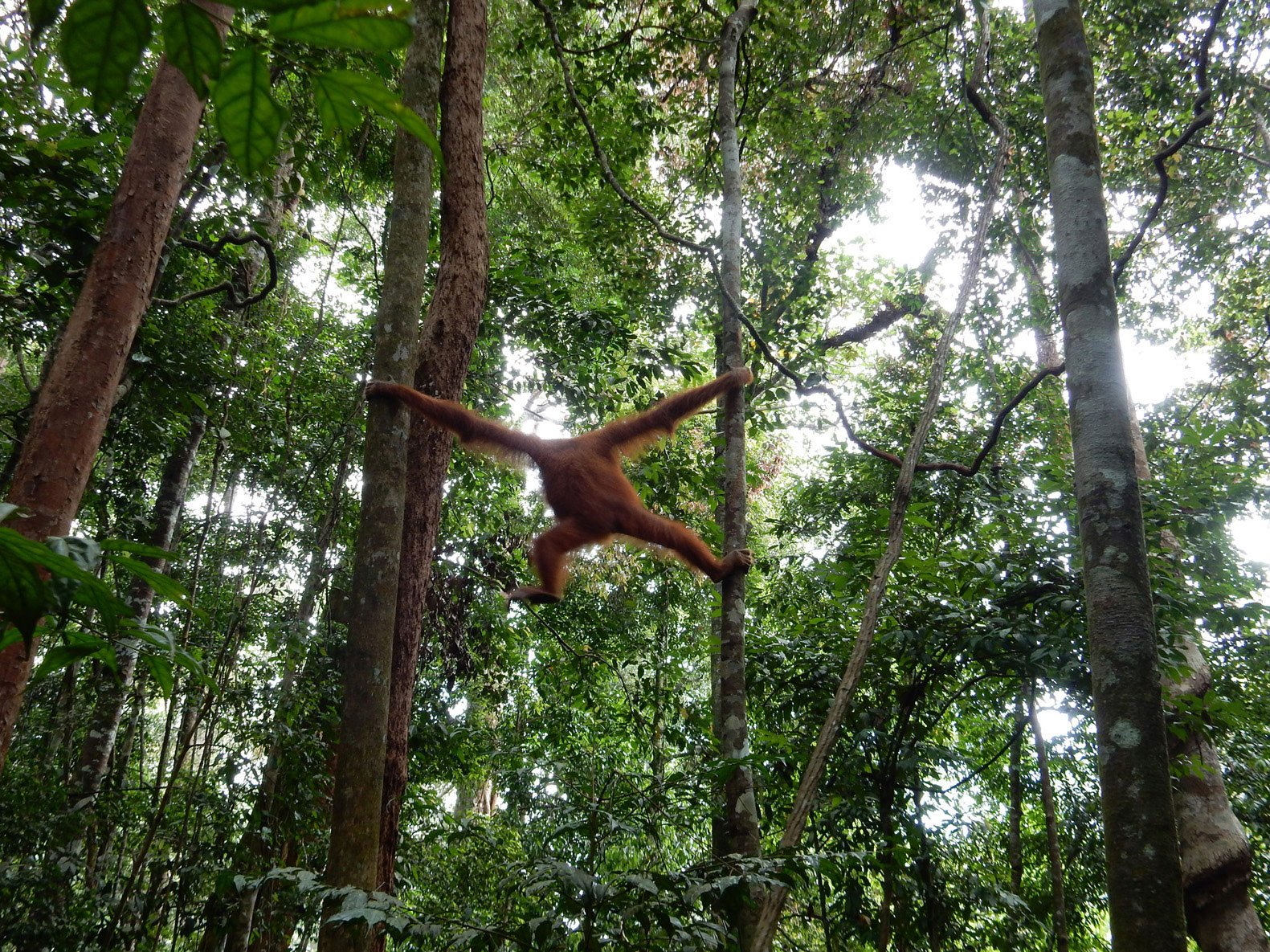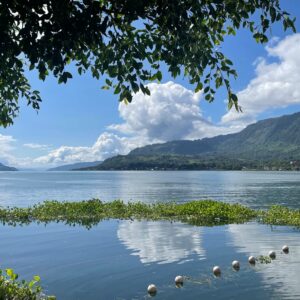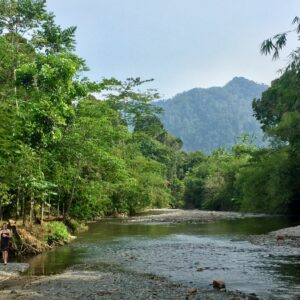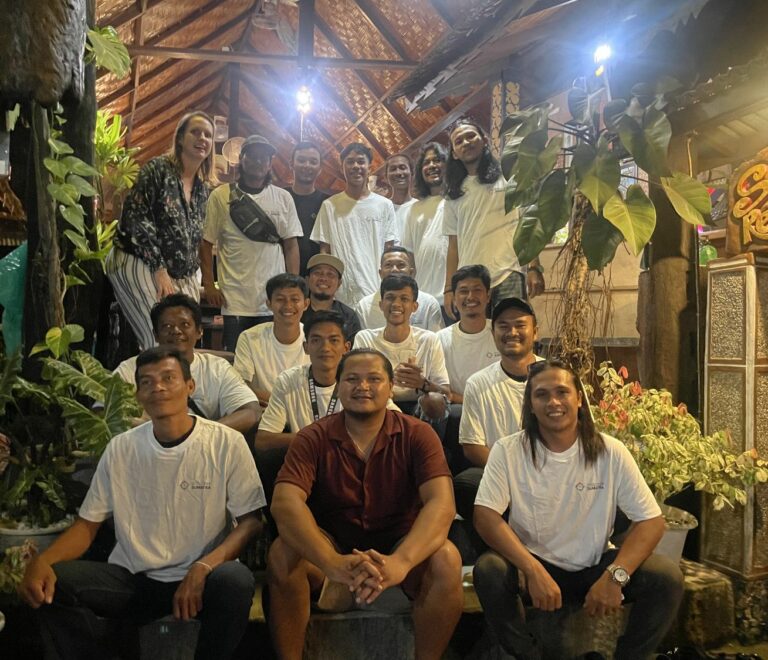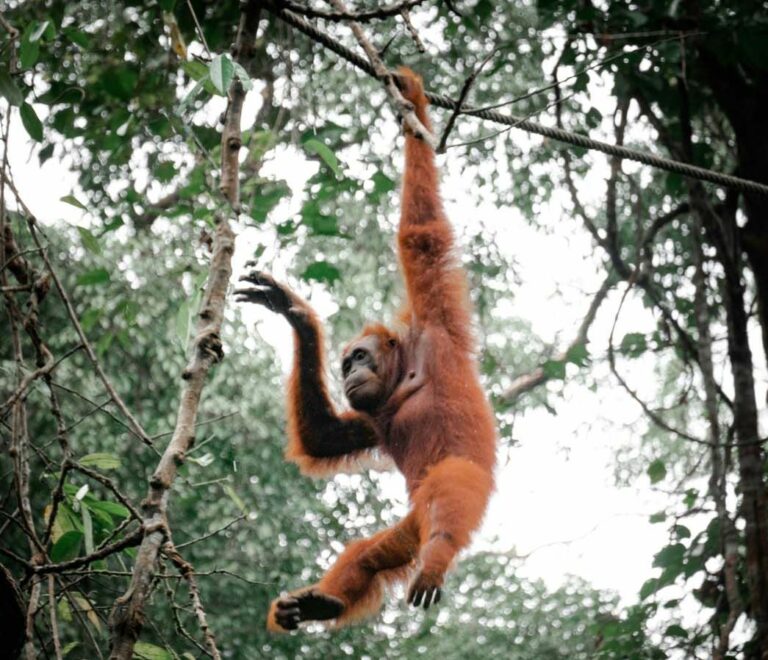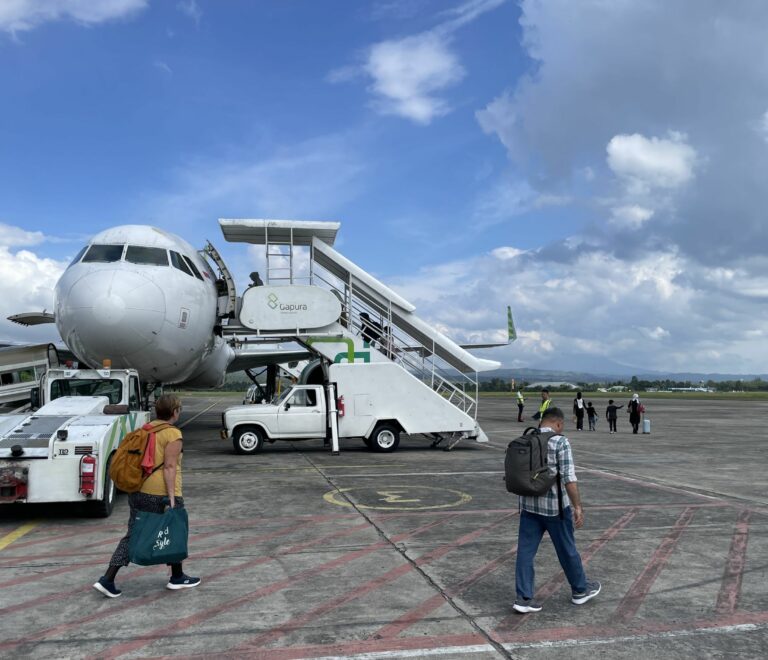Help us protect the fascinating monkey with the red fur
The name orangutan means “man of the forest” in Indonesian and makes it clear that the animals live in trees whenever they have the opportunity. They spend most of their lives in treetops. There they feed on insects, other small animals and fruits. Only rarely do they even come down to the ground.
The largest surviving tree mammals with the fascinating red fur live in the lowland rainforests and in the swamps of the lowlands. Unlike their African ape relatives, orangutans live predominantly as solitary animals. However, females of the Sumatran orangutan are known to live together in a loose association of several animals.
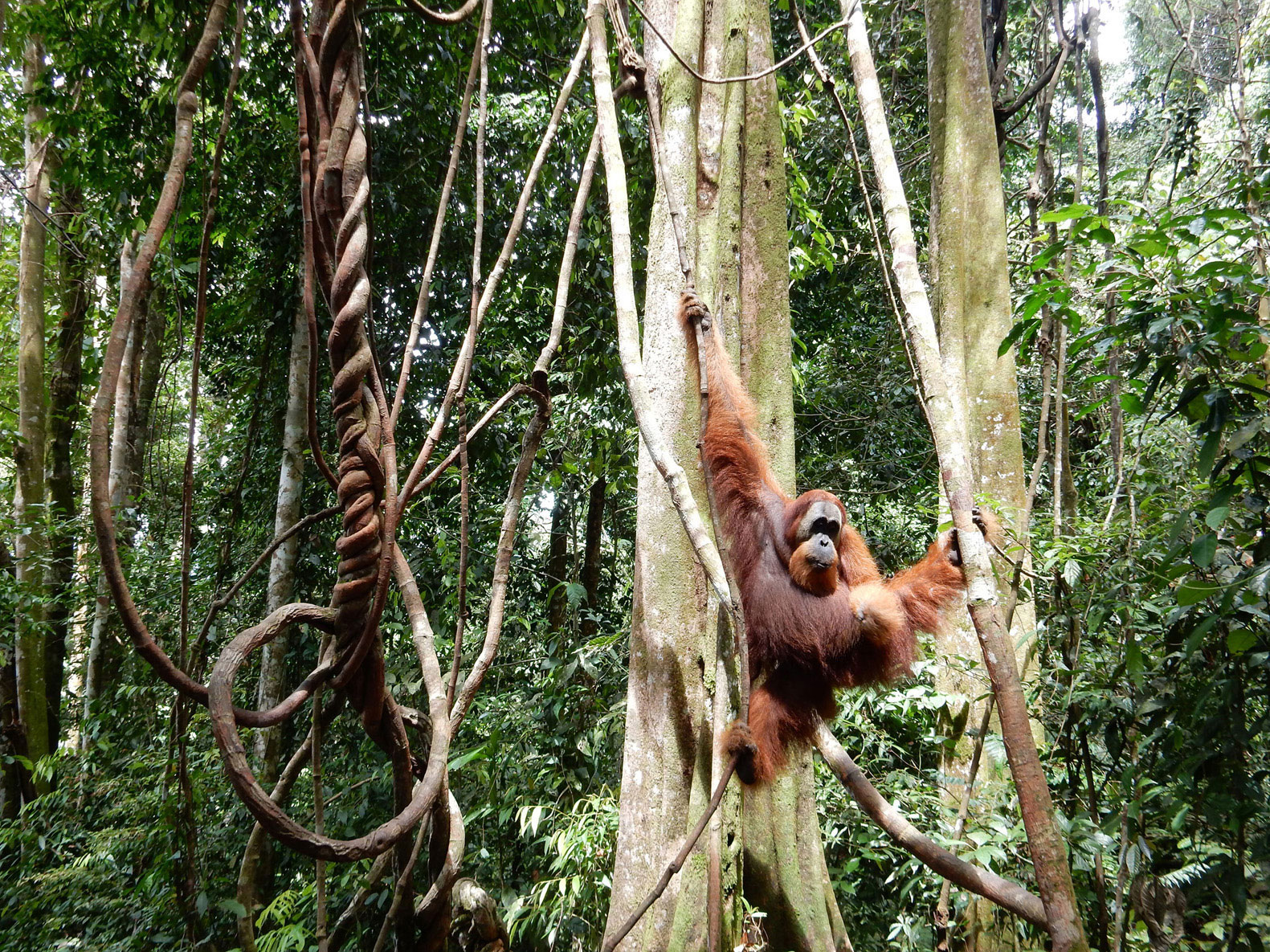
However, deforestation, habitat fragmentation and hunting threaten the survival of the apes in the wild. On the Red List of Threatened Species, the Sumatran orangutans are classified as “Critically Endangered”. On Sumatra, humans have already destroyed 95% of the original rainforests. About half of them are on Borneo.
To a very large extent, the orangutan’s genetic make-up is identical to ours. It has changed only very slowly over millions of years. From a genetic point of view, we humans have a surprising amount in common with the orangutan. Analyses by an international team of researchers show that the genetic material of humans and orangutans is 97% identical. This is not far below that of chimpanzees, whose genome is 99% the same as ours.
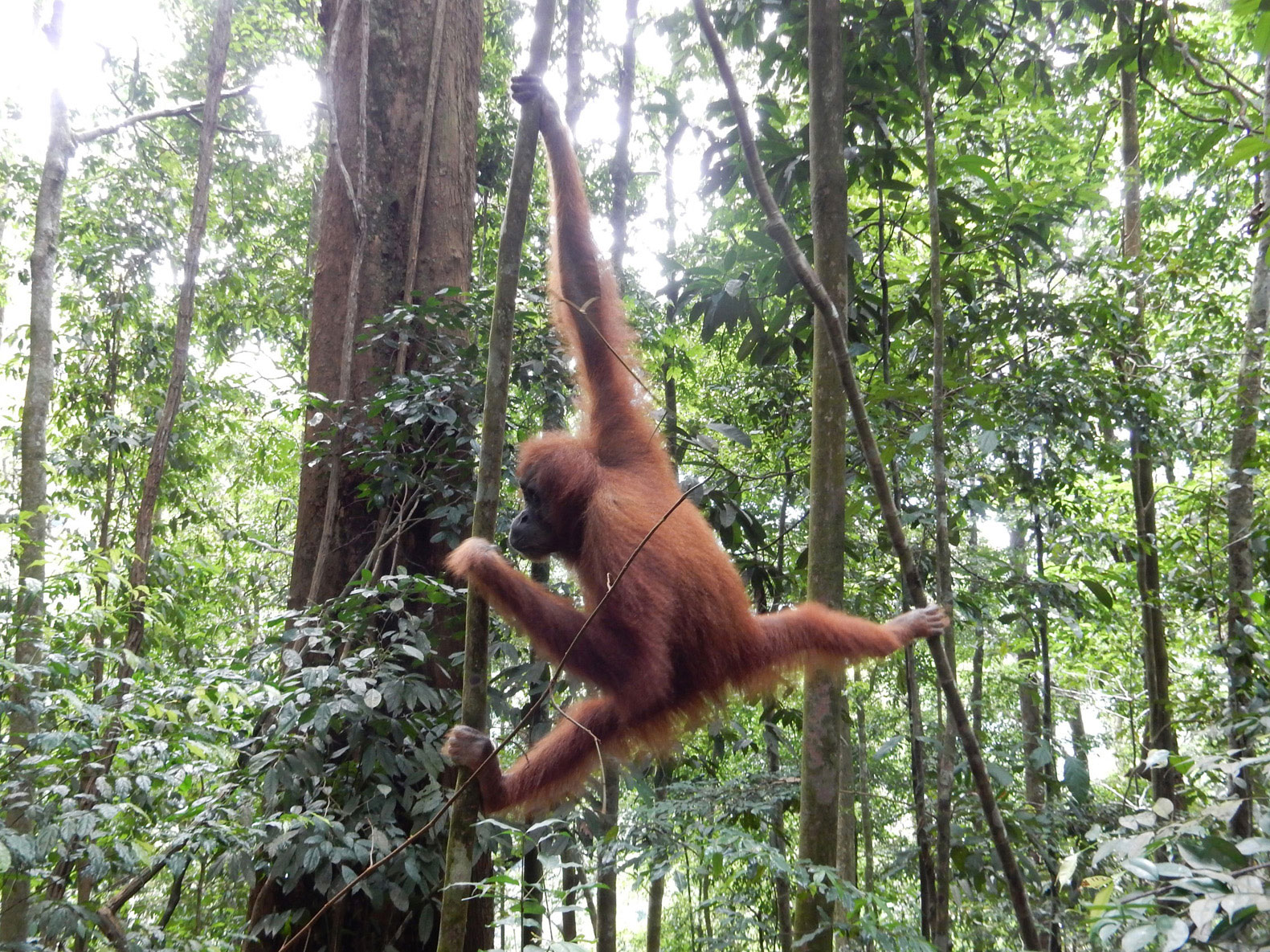
While jungle trekking in Bukit Lawang, you have the opportunity to observe these apes up close. In the past, there was a feeding station from which they were later released into the wild. This means that the endangered animals are used to us humans. Sometimes they can can also get closer to you. Please bear in mind that the jungle cannot be compared to a zoo. You should not feed the orangutans.
As the beautiful animals belong to the primate genus of the ape family, you should observe a few important things: Please do not touch the monkeys while jungle trekking in Bukit Lawang. There is also an absolute ban on feeding. It can be dangerous for the wild animals to have physical contact with humans, as they can die from even the transmission of a mild cold.
Do’s and Don’ts in the jungle
- Listen to your guide
- Do not feed or touch animals
- Be quiet and keep your distance
- Keep the jungle clean
- Be respectful
It is desirable to treat animals with respect. Only in this way can we protect them and ensure that they reproduce and regain a foothold in their natural habitat.
Help us protect the fascinating monkey with the red fur.

